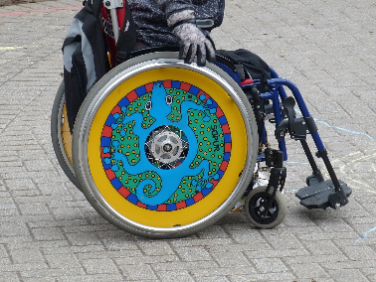In-Home Supportive Services (IHSS) Program

IHSS is a program that is available to support children who have a disability and need assistance to remain safely in their own home. The program provides a range of services to minor recipients such as services related to domestic services, personal care services, accompaniment by a provider when needed during necessary travel to health-related appointments or alternative resource sites, protective supervision only as needed because of the functional limitations of the child, and paramedical services.
The IHSS Program is funded through four sub programs: the Community First Choice Option (CFCO), the Personal Care Services Program (PCSP), the IHSS Plus Option (IPO), and IHSS-Residual (IHSS-R) which each have specific program requirements. When a minor is enrolled in the IHSS sub program, PCSP, a parent is not permitted to be their minor child’s provider as this is restricted by federal program rules.
However, effective 60 days after the publication of ACL 23-106, minor recipients, who are in CFCO, IPO, or IHSS-R, may hire any provider that successfully completes provider enrollment. Parents who wish to provide IHSS to their minor child should inform the county of their provider preference so this information may be taken into account when determining IHSS Program eligibility. Choosing to have a parent as a provider will not impact IHSS eligibility; however, it will determine which IHSS program the minor is placed.
When May Children Receive IHSS?
- When they have a disability and come from a low-income family (receipt of SSI
means automatic eligibility).
- If their income is too high for SSI, they may qualify with a share of cost.
The child must also:
- Physically reside in the United States.
- Be a California resident.
- Have a Medi-Cal eligibility determination.
- Live in a home or an abode of their own choosing (Note: acute care hospitals, long-term care facilities, and licensed community care facilities are not considered a recipient's "own home").
- Submit a completed Health Care Certification form (SOC
873) or
acceptable alternative documentation.
How the Program Works
- A county social worker will interview you and your child at your home to determine your child's eligibility and need for IHSS. Based on the information gathered the social worker will assess the types of services your child needs and the number of hours the county will authorize for each of these services. This assessment will include information given by you and, if appropriate, by your family, friends, physician or other licensed health care professional.
- A completed Health Care Certification (SOC 873) or acceptable alternative documentation must be received by the county prior to authorization of services.
- You will be notified if IHSS has been approved or denied for your child. If denied, you will be notified of the reason for the denial. If approved, you will be notified of the services and the number of hours per month which have been authorized for your child.
- If approved for IHSS, you (as a legal guardian) must hire someone (your individual provider) to perform the authorized services for your child. You are considered the employer of
your child’s provider and, therefore, it is your responsibility to hire, train, supervise, and fire this individual.
- If your county has contracted IHSS providers, you may choose to have services provided by the contractor.
- If your county has homemaker employees, you may receive services from a county homemaker.
How are IHSS Payments Made?
- You may contact the social worker assigned to your child's case to determine the IHSS hourly rate in your county. Because unions negotiate with the employer of record in each county, the wage rates may vary from county to county. The State issues all checks for individual provider payments. If the provider qualifies, the State withholds the applicable amounts for disability insurance and Social Security taxes.
-
Providers may be compensated only for the following services as specified by Welfare and Institutions Code 12300(e): Services related to domestic services, personal care services, accompaniment by a provider when needed during necessary travel to health-related appointments or alternative resource sites, protective supervision only as needed because of the functional limitations of the child, and paramedical services.